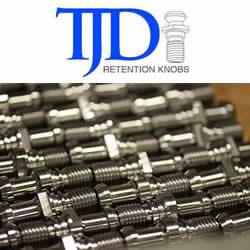Variability Reduction: Why Important To Manufacturers?
The Current State of Supply Chain Data Quality
Next-Gen Technologies to Navigate Key Shifts in Industrial Manufacturing
Automatic Photo Portal for the Documentation of Intralogistics Processes
Scaling Up Production, Fast - How Manufacturers Can Increase Productivity to Meet Growing Demand
Securing the OT edge with SASE
One Hour Makes All the Difference: Automate Quickly and Effectively With AI
Is now the time for Manufacturers to accelerate the Digital Transformation process?
Digital Transformation Roadmap for Manufacturing Industry
BEVERAGE MANUFACTURER TRANSFORMING INTO A DIGITAL OPERATION
Managing Obsolescence in Industry 4.0 - Obsolete Doesn't Mean Game Over
How Does the New Generation Memory - DDR5 - Change Things?
Protecting Workers from Manufacturing Hazards
Why You Should Skip Free DNC Software
Case Study: Keselowski Advanced Manufacturing (KAM)
Records 436 to 450 of 1660
First | Previous | Next | Last
Featured Product

